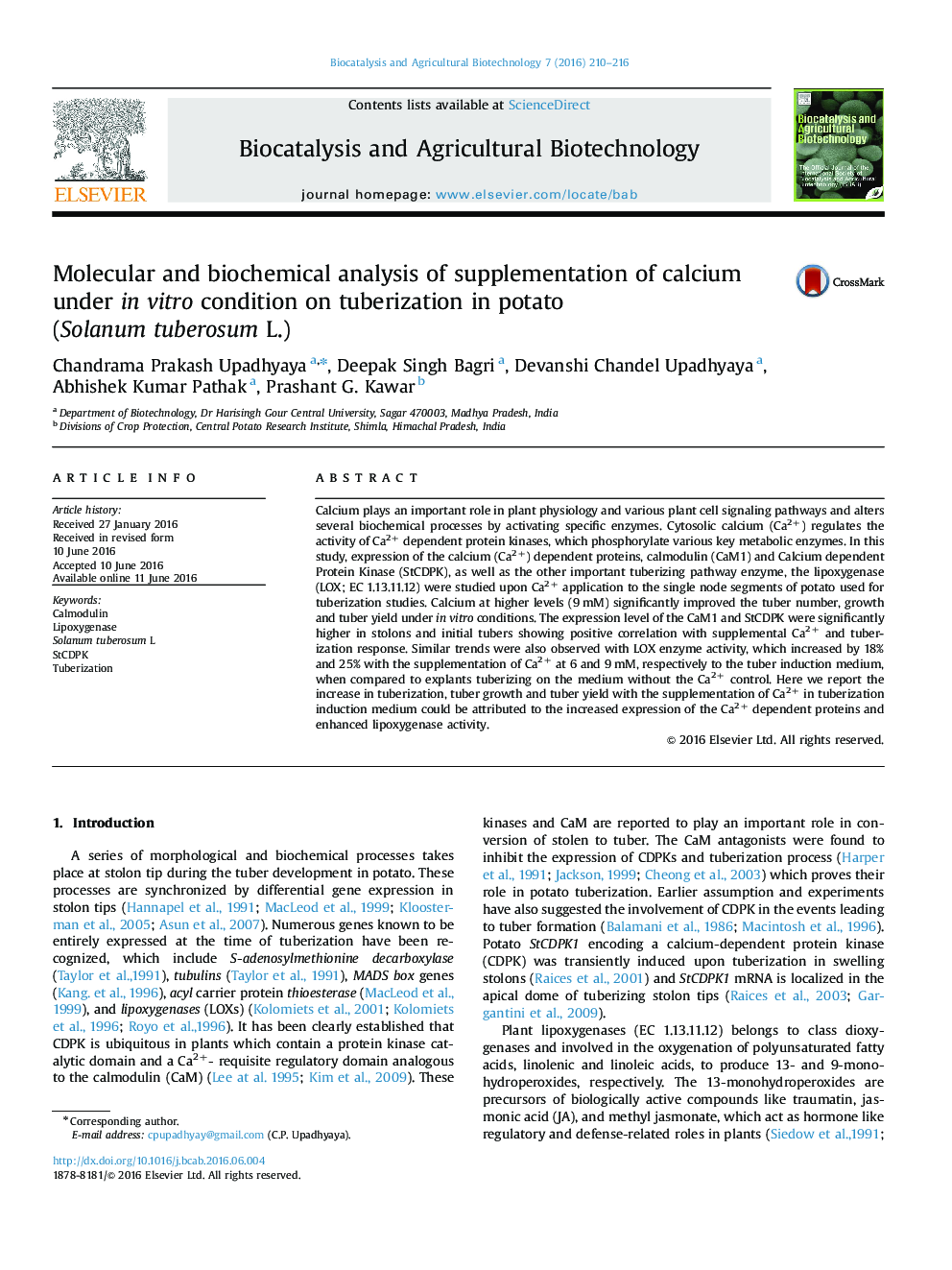| Article ID | Journal | Published Year | Pages | File Type |
|---|---|---|---|---|
| 2075617 | Biocatalysis and Agricultural Biotechnology | 2016 | 7 Pages |
•Calcium at 9 mM significantly improved the tuber number and yield.•Expression of the CaM1 and StCDPK showed correlation with Ca2+ supplementation.•Supplementing Ca2+ also attributed to higher expression of Ca2+ dependent proteins.
Calcium plays an important role in plant physiology and various plant cell signaling pathways and alters several biochemical processes by activating specific enzymes. Cytosolic calcium (Ca2+) regulates the activity of Ca2+ dependent protein kinases, which phosphorylate various key metabolic enzymes. In this study, expression of the calcium (Ca2+) dependent proteins, calmodulin (CaM1) and Calcium dependent Protein Kinase (StCDPK), as well as the other important tuberizing pathway enzyme, the lipoxygenase (LOX; EC 1.13.11.12) were studied upon Ca2+ application to the single node segments of potato used for tuberization studies. Calcium at higher levels (9 mM) significantly improved the tuber number, growth and tuber yield under in vitro conditions. The expression level of the CaM1 and StCDPK were significantly higher in stolons and initial tubers showing positive correlation with supplemental Ca2+ and tuberization response. Similar trends were also observed with LOX enzyme activity, which increased by 18% and 25% with the supplementation of Ca2+ at 6 and 9 mM, respectively to the tuber induction medium, when compared to explants tuberizing on the medium without the Ca2+ control. Here we report the increase in tuberization, tuber growth and tuber yield with the supplementation of Ca2+ in tuberization induction medium could be attributed to the increased expression of the Ca2+ dependent proteins and enhanced lipoxygenase activity.
